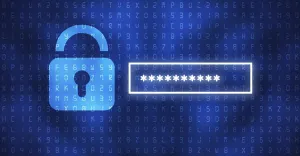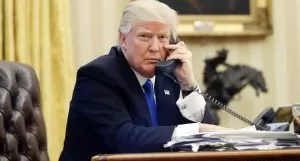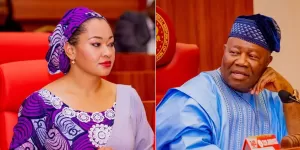Federal Judge Blocks Trump Administration’s Attempt to Take Over and Dismantle U.S. Institute of Peace

Washington, D.C. – On May 19, 2025, a federal judge delivered a significant ruling that halted the Trump administration’s efforts to seize control of and dismantle the United States Institute of Peace (USIP), an independent nonprofit organization established by Congress in 1984 to promote conflict resolution and peacebuilding worldwide. U.S. District Judge Beryl Howell declared the administration’s actions illegal, nullifying the takeover and preserving the institute’s autonomy.
The ruling came in response to a controversial move by the Department of Government Efficiency (DOGE), a newly formed entity under the Trump administration tasked with streamlining federal operations. DOGE had orchestrated the firing of USIP’s entire board of directors and initiated the transfer of the institute’s property and assets to the General Services Administration (GSA), a federal agency responsible for managing government real estate and resources. The administration’s plan was widely seen as an attempt to dissolve or repurpose the institute, which has long been a cornerstone of U.S. efforts to foster diplomacy and nonviolent conflict resolution.
In her decision, Judge Howell ruled that the administration’s actions exceeded the president’s authority and violated the legal framework governing USIP’s operations. The institute, while federally funded, operates as an independent entity with a congressionally mandated mission. Howell emphasized that the executive branch lacked the unilateral power to dismantle or reorganize the institute without congressional approval. “The president’s authority does not extend to nullifying the statutory independence of the U.S. Institute of Peace,” Howell wrote in her opinion. “The actions taken by the administration are hereby declared null and void.”
The case has drawn significant attention due to its implications for the balance of power between the executive and legislative branches, as well as the broader debate over the role of independent institutions in U.S. foreign policy. USIP, headquartered in Washington, D.C., has been instrumental in supporting peace negotiations, training mediators, and conducting research on conflict prevention in regions such as the Middle East, Africa, and South Asia. Critics of the administration’s move argued that dismantling USIP would undermine U.S. leadership in global peacebuilding and weaken its soft power on the international stage.
The Trump administration’s rationale for targeting USIP was rooted in DOGE’s broader mission to reduce government spending and eliminate perceived redundancies. Administration officials claimed that USIP’s functions could be absorbed by other federal agencies, such as the State Department, or that its mission was no longer aligned with current national priorities. However, these arguments faced fierce opposition from lawmakers, former diplomats, and civil society organizations, who rallied to defend the institute’s unique role and track record.
The legal challenge was brought by a coalition of USIP supporters, including members of its ousted board of directors and advocacy groups, who argued that the administration’s actions violated both the institute’s founding legislation and principles of institutional independence. The plaintiffs contended that the takeover was not only unlawful but also a politically motivated effort to suppress an organization whose work emphasized diplomacy over militarization.
Judge Howell’s ruling reinstates USIP’s board of directors and halts the transfer of its assets to the GSA, effectively restoring the institute’s status quo. The decision is a setback for DOGE, which has faced scrutiny for its aggressive approach to restructuring federal agencies and programs. While the administration could appeal the ruling, legal experts suggest that the clarity of Howell’s decision, grounded in statutory interpretation, may make an appeal difficult.
The ruling has been met with relief and cautious optimism by USIP’s staff, supporters, and partners. “This decision reaffirms the importance of independent institutions in advancing peace and stability,” said a USIP spokesperson in a statement. “We look forward to continuing our work in support of Congress’s vision for a more peaceful world.”
On Capitol Hill, bipartisan lawmakers praised the court’s decision, with some calling for stronger protections to shield USIP and similar organizations from future executive overreach. “The U.S. Institute of Peace is a vital asset in our foreign policy toolkit,” said Senator Chris Coons (D-Del.), a longtime supporter of the institute. “This ruling ensures that it can continue its critical work without political interference.”
As the Trump administration navigates the fallout from the ruling, the case underscores ongoing tensions over the scope of executive power and the future of independent federal institutions. For now, the U.S. Institute of Peace remains intact, poised to continue its mission of fostering dialogue and preventing conflict in an increasingly volatile world.







